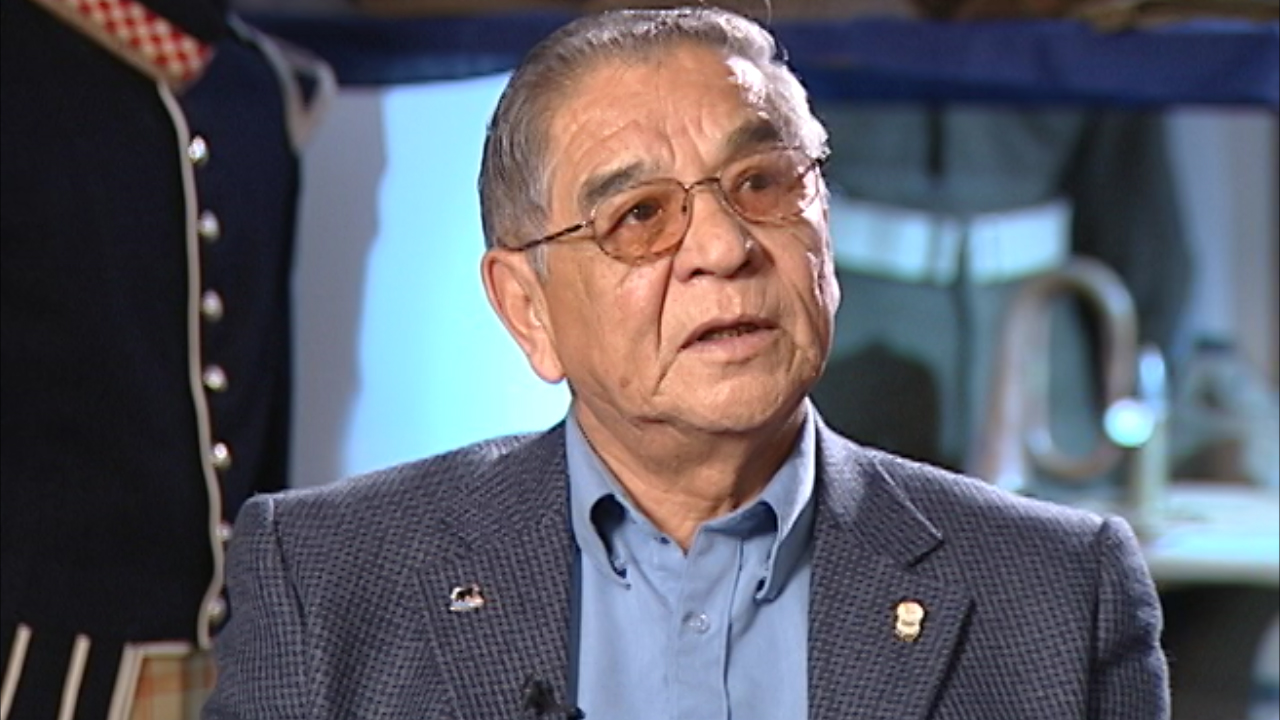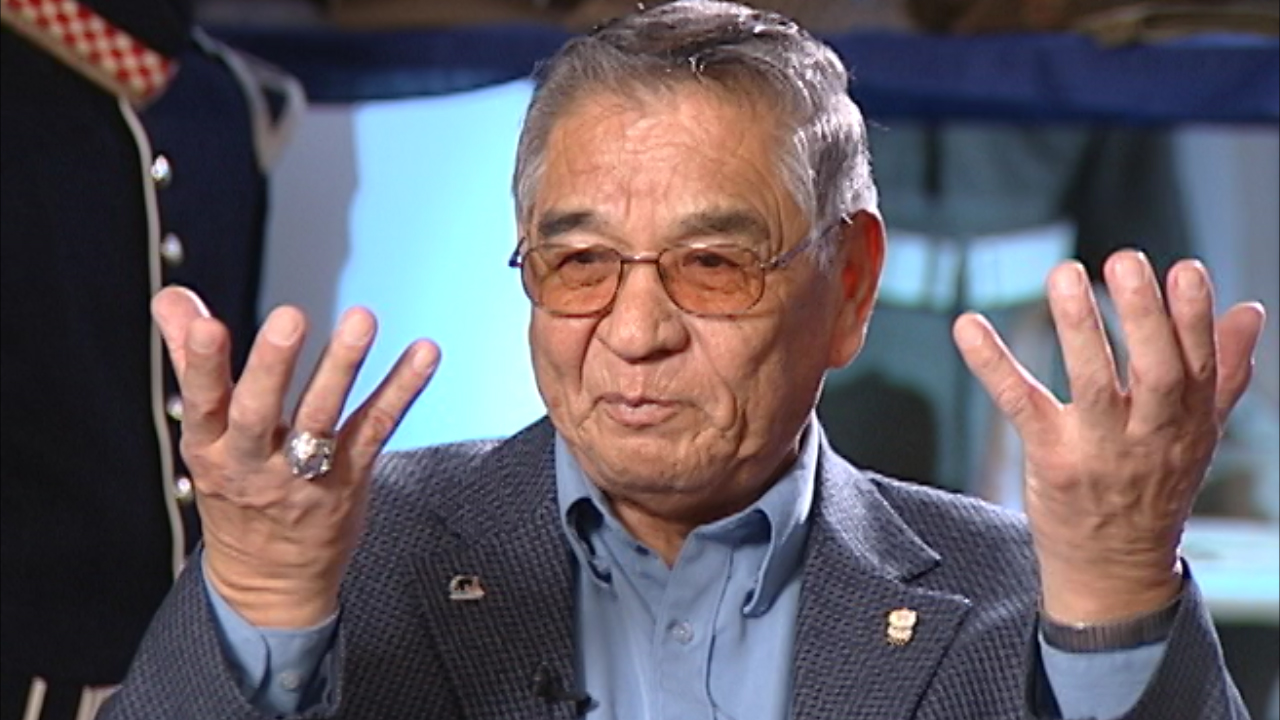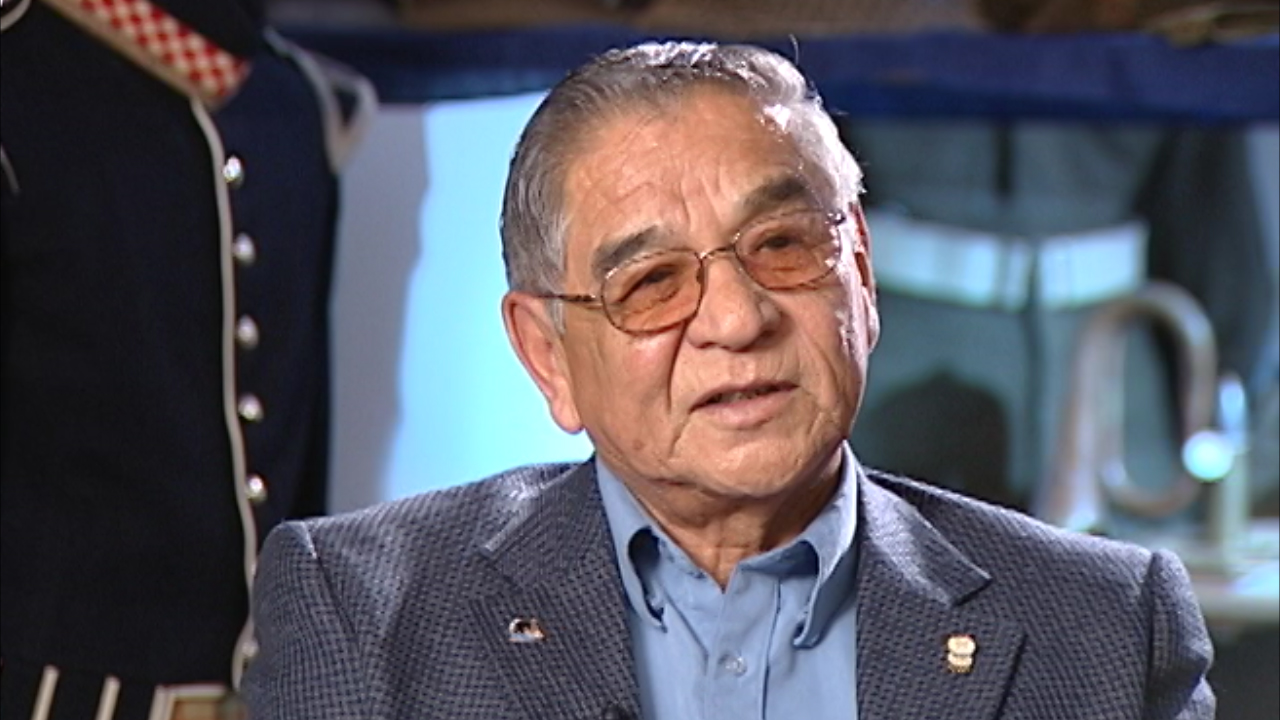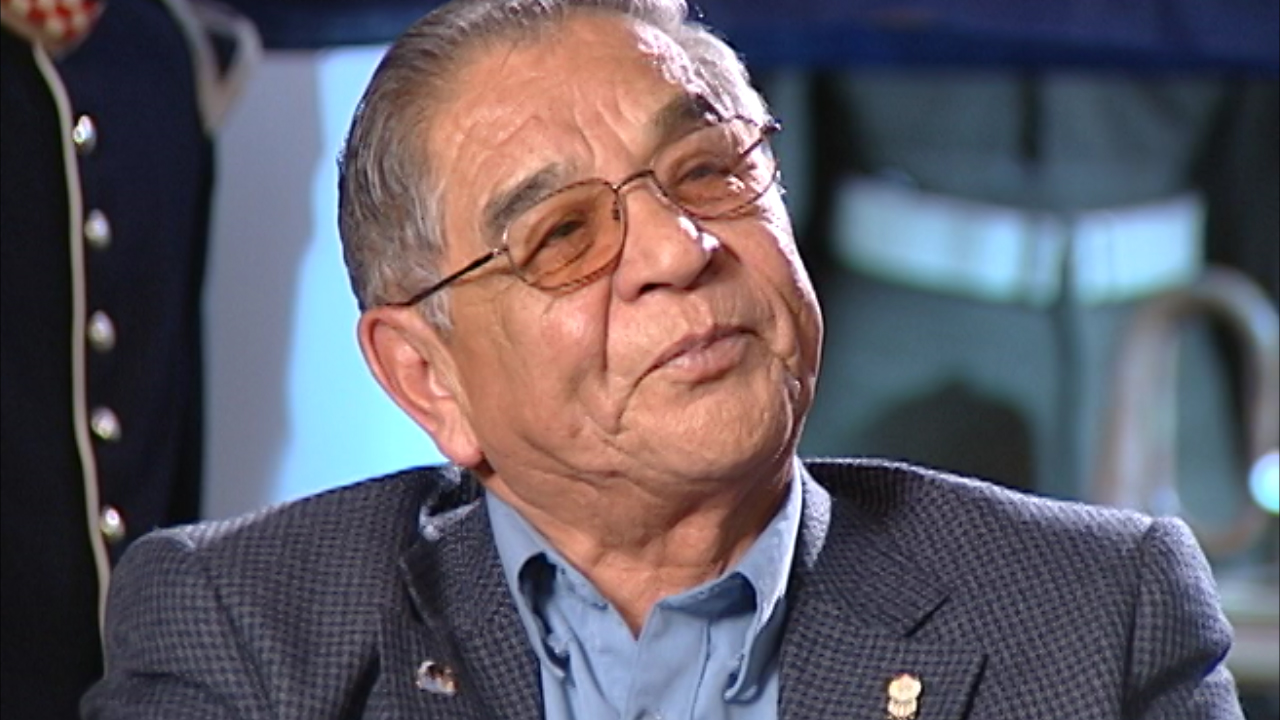Post-War Benefits
Heroes Remember
Post-War Benefits
Transcript
The only the other thing that I'd like
to speak about this time,
was the how the First Nation Veterans
were treated after the wars.
There's something else Veterans Affairs
should be thinking of and other people
should know about.
We were all treated different, you know,
we were treated different.
When we were in action fighting side
by side with our white brothers,
everything was equal, everything was equal.
But it's after we were demobilized,
discharged, released,
we were treated different.
We aren't able to, we weren't able to,
to draw the post-war benefits that other
Canadians were entitled to and we were
entitled to them as well.
Post-war benefits where the white Veterans
got benefits that were more than the
Indian Veterans, but we were sent back to
the reserve to be Indians again,
to be under the dictatorship
of the Indian Agent because that's all
they were, those Indian Agents were,
they were little dictators.
They controlled our community,
you couldn't do anything, they had the say,
and when we tried to get our
post war benefits, we were sent back to the
reserve and they said, you'll get them
from the Indian Agent.
There was benefits that were made
available to non-Indian Veterans such as
them to go back to, to school, to college,
university and get a better education.
We didn't have that opportunity.
There was housing that was made
available to non-Indian Veterans.
We didn't get that opportunity.
I can recognize war,
war time housing in any town, any city,
they're all built the same and those
were the houses that were built for the
returning soldiers of urban centres.
You'll never see a, a Veteran's house
on any reserve in Saskatchewan, never.
They couldn't get anything.
Some of the, some of the non-Indian
veterans were, were given preferential
treatment to get employment
from the federal government.
We didn't get that opportunity.
All those benefits we couldn't get.
All I received when I got back
from Korea was what they called,
what the hell did they call that...,
rehabilitation grant, I think it was.
And all it was, was, all it was,
was 110 dollars, and that's all.
That's all I got for my. Like, I had a brother
that went to Korea, too, ahead of me.
He was in the Princess Patricia's
Canadian Light Infantry. He was a sniper.
He got wounded.
Well, he didn't get anything.
Description
Mr. Cote talks about how in the war all men were treated equal, but after the war, they were treated differently in respect to post-war benefits.
Antoine (Tony) Cote
Mr. Antoine Cote was born on the Cote First Nation Reservation, just outside of Kamsack, Saskatchewan. During his youth, Mr. Cote endured 7 long years of detention at St. Phillips Residential School. In 1952, Mr. Cote, age 17, enlisted in the Armed Forces, and was assigned to the 81st Field Regiment, Royal Canadian Artillery. After training, Mr. Cote and the 81st Regiment were shipped to Korea in March 1953. Mr. Cote returned to Canada after serving in Korea for 14 months, and re-enlisted for another 3 years before retiring from the service in 1958.
Meta Data
- Medium:
- Video
- Owner:
- Veterans Affairs Canada
- Duration:
- 03:28
- Person Interviewed:
- Antoine (Tony) Cote
- War, Conflict or Mission:
- Korean War
- Branch:
- Army
- Units/Ship:
- 81st Field Regiment - Royal Canadian Artillery
- Occupation:
- Gunner
Related Videos
- Date modified:






